Dangote Refinery: Revolutionizing Nigeria’s Oil Industry with Unprecedented Capacity and Technological Advancements
Dangote Refinery: An Oil Refinery Revolutionizing Nigeria's Economy
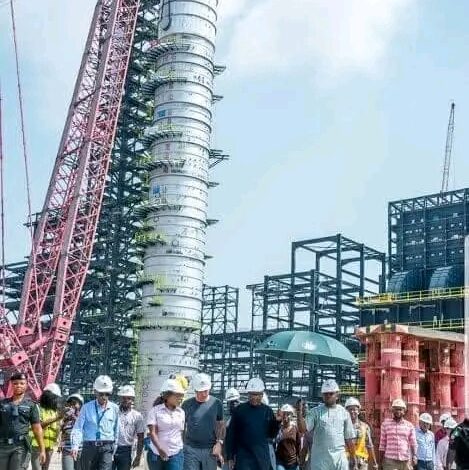
Dangote Refinery: An Oil Refinery Revolutionizing Nigeria’s Economy
Nigeria, the largest oil-producing nation in Africa, has been dealing with a significant issue for years now—the importation of refined oil products. This has led to a shortage of these products and, as a result, the country has to spend substantial foreign exchange to import them.
Fortunately, the situation is about to change with the commissioning of the Dangote Refinery, which is set to begin operation on May 22nd, 2023. The refinery, which is the world’s largest single train oil refinery, has the capacity to refine 650,000 barrels per day.
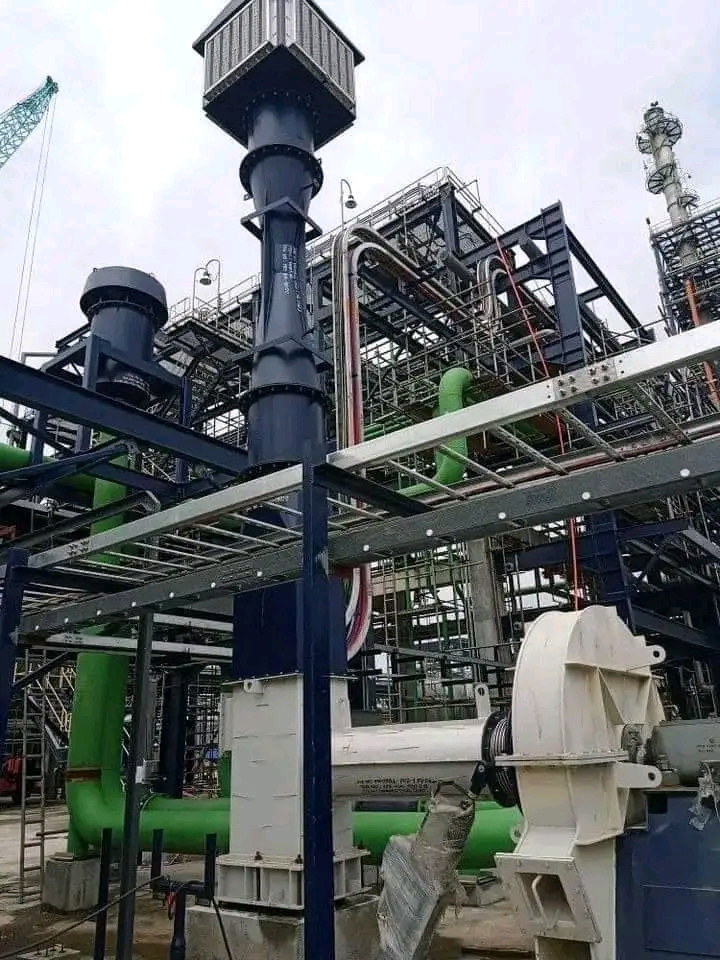
The Dangote Refinery is one of the largest projects going on in Nigeria, and has been said to be a significant effort towards the country’s sustainable economic growth. The project has been in development for years, and its eventual commissioning is expected to bring about a revolution in the country’s economy.
The refinery, which is owned by Africa’s richest man, Aliko Dangote, is located in Lagos, Nigeria’s economic capital. The investment that has gone into the project is massive, with a total cost of $19 billion.
When the refinery begins operation, it will reduce the cost of importing refined oil products dramatically. The impact this would have on Nigeria’s economy cannot be overstated.
An estimated $10 billion is lost yearly due to importation, which is a significant dent on the country’s foreign exchange. With the refinery’s operational capacity, as estimated, it would be able to process more than 190,000 barrels of crude oil daily, translating to about $7.5 billion per annum.
The impact of this investment on the economy of Nigeria is already being felt, as the project has employed tens of thousands of Nigerian nationals, with more jobs expected to be created when the refinery begins operation.
The importance of this refinery to Nigeria’s economy cannot be overstated. It is not just an industrial plant, but a significant investment in the country’s economic growth.
The Dangote Refinery is expected to provide a boost to Nigeria’s economy by reducing the cost of importing refined oil products and, in turn, encouraging local production of these products. With more jobs expected to be created, the refinery will undoubtedly mitigate the unemployment crisis within the country.
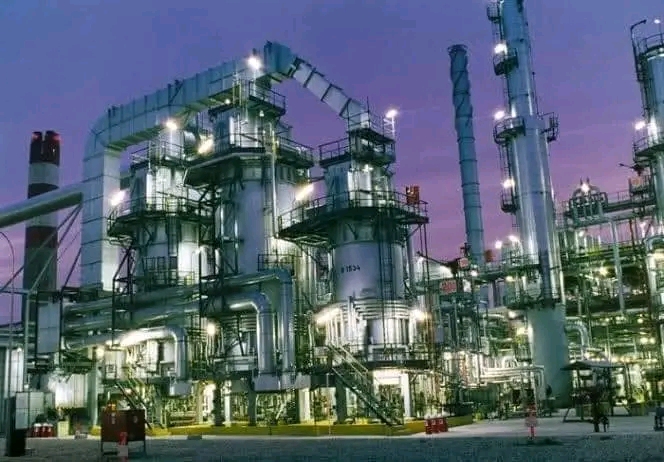
Another advantage of the Dangote Refinery is that it would enable Nigeria to conserve its foreign exchange reserves. In recent years, the country has been struggling with the weakening value of the naira, its currency.
This decline in value has been attributed to various factors, significant among them being the country’s inability to save and conserve its foreign exchange reserves. With the operational capacity of the Dangote Refinery, the amount Nigeria saves in foreign exchange will skyrocket, providing a much-needed boost to the country’s reserves.
In summary, the commissioning of the Dangote Refinery would mark the beginning of a new era for Nigeria, one that is characterized by sustainable economic growth. The importance of the refinery to the country’s economy cannot be overstated, as it is an investment in reducing the cost of imported refined oil products, conserving foreign reserves, and creating jobs.
The refinery would undoubtedly mitigate the economic crisis of importing refined oil products into the country and, in turn, provide much-need oil independence for Nigeria. The country can only hope that more investments like the Dangote Refinery will come to the fore, providing a much-needed boost to its economy.
Dangote Refinery: Revolutionizing Nigeria’s Oil Industry with Unprecedented Capacity and Technological Advancements
The Dangote Refinery, situated in Lagos, Nigeria, is a groundbreaking project that has the potential to transform Nigeria’s oil industry and significantly impact the global energy landscape. Spearheaded by Aliko Dangote, Africa’s wealthiest man, this state-of-the-art refinery aims to alleviate Nigeria’s heavy dependence on imported petroleum products and establish the country as a major player in the refining sector. In this SEO post, we will delve into the key features, technological advancements, economic impact, and environmental considerations surrounding the Dangote Refinery.
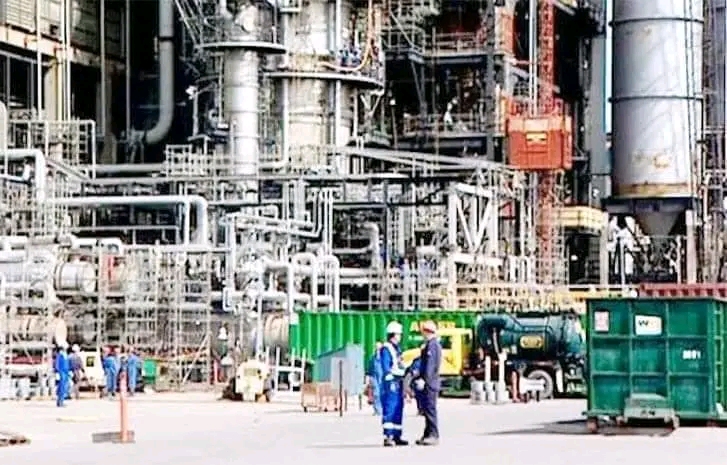
- Overview and Significance
The Dangote Refinery, with an estimated cost of $15 billion, is set to be the largest single-train refinery in the world. With a refining capacity of 650,000 barrels per day (bpd), it will surpass the combined capacity of Nigeria’s four existing refineries. This immense capacity will enable Nigeria to become self-sufficient in meeting its domestic fuel demands and reduce the need for costly fuel imports, which have plagued the country for decades.
- Technological Advancements
The Dangote Refinery incorporates cutting-edge technologies and processes to ensure optimal efficiency, product quality, and environmental sustainability. It will utilize a variety of advanced refining units, including fluid catalytic cracking, delayed coking, hydrocracking, and other conversion processes. These technologies maximize the conversion of crude oil into high-value products such as gasoline, diesel, jet fuel, and polypropylene.
Moreover, the refinery will leverage state-of-the-art equipment and control systems, ensuring precise monitoring and control of various refining processes. Advanced automation and digital integration will enhance operational efficiency, minimize downtime, and facilitate predictive maintenance, further boosting the refinery’s overall performance.
- Economic Impact
The Dangote Refinery is expected to have a profound impact on Nigeria’s economy. The project will generate thousands of direct and indirect job opportunities, promoting employment and skill development. It will also foster technological transfer and knowledge sharing, empowering local talent and supporting the growth of Nigeria’s refining industry.
Additionally, the refinery’s operations will reduce Nigeria’s reliance on fuel imports, resulting in substantial foreign exchange savings. By producing refined products locally, Nigeria can redirect its oil revenue towards developmental projects, infrastructure improvements, and social welfare programs. The increased availability of affordable petroleum products within the country will also positively impact various sectors, including transportation, agriculture, and manufacturing.
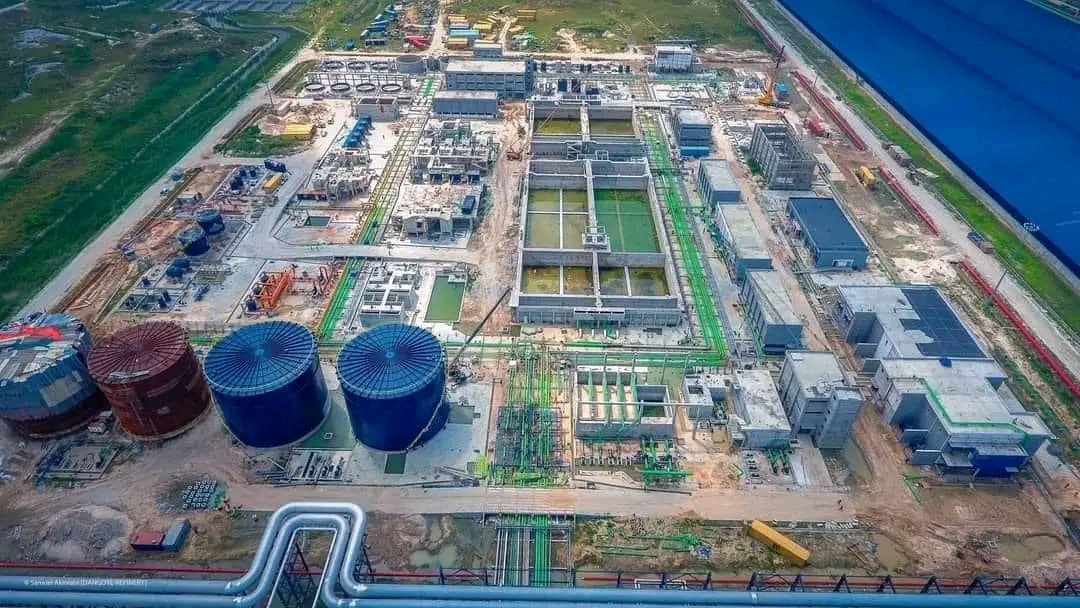
- Environmental Considerations
The Dangote Refinery incorporates environmental sustainability as a core principle. Advanced technologies, such as catalytic converters and flue gas treatment systems, will be employed to minimize emissions of greenhouse gases, particulate matter, and other pollutants. Stringent air quality control measures and waste management protocols will be implemented to ensure compliance with local and international environmental regulations.
Furthermore, the refinery aims to leverage renewable energy sources, such as solar power, to supplement its energy requirements. This commitment to renewable energy not only reduces the refinery’s carbon footprint but also aligns with global efforts to combat climate change.
The Dangote Refinery represents a monumental achievement for Nigeria and the African continent as a whole. With its unprecedented refining capacity, technological advancements, and focus on sustainability, this refinery has the potential to revolutionize Nigeria’s oil industry.
By reducing fuel imports, creating jobs, boosting the economy, and prioritizing environmental stewardship, the Dangote Refinery sets an exemplary standard for future refinery projects globally. As the completion of the refinery draws near, the nation eagerly anticipates the positive transformation it will bring to Nigeria’s energy landscape and the broader socio-economic fabric of the country.
arewanahiya.com







